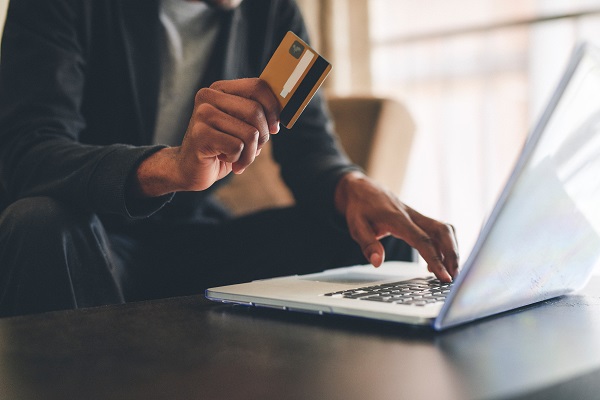Protecting Yourself from Bank Fraud and Scams in Malaysia
In today’s digital age, financial scams have become increasingly prevalent and sophisticated, especially with the wide use of digital banking services in Malaysia. It is important to be proactive and stay informed of these threats to safeguard your personal information and finances. In this article, we highlight the common types of bank fraud, scams, and tips on how to protect yourself and what to do if you fall victim to these scams.

Types of financial scams
Financial scams come in many forms, and scammers are constantly developing new ways to trick unsuspecting victims. Some common types of financial scams include phishing, card skimming, phone scams and identity theft. By understanding these common types of financial scams, you can better protect yourself.
Phishing
Phishing is commonly used to steal personal and financial information from individuals. Phishing often involves fraudulent emails or messages that are designed to look legitimately from banks or financial institutions. These messages typically include a link to a fake website that looks like the bank’s official website and then requires you to provide sensitive information such as login credentials, credit card numbers or other personal details. Once the user enters this information, the scammers can use it to access the victim's accounts or steal their identity. Phishing scams can be very convincing and often use tactics such as urgent or threatening language to pressure the victim into providing their information.
Card Skimming
Card skimming involves stealing credit or debit card information using a skimming device. These devices are often attached to ATMs or point-of-sale machines and can quickly and easily capture card information such as the card number, expiration date, and security code. Criminals can then use this information to make unauthorised purchases or withdraw money from the victim's account. Skimming devices are often small and inconspicuous, making them difficult to detect.
Accessibility
It is wise to choose an account that is accessible and convenient for you, whether it is physical branches or online banking options. If you are an individual that prefers making transactions in person, then it is advisable to choose a bank that has a branch or ATM near your home or workplace. If you prefer digital banking service in Malaysia, then opt for a bank that offers a comprehensive online banking platform or mobile app such as HLB Connect.
Phone Scams
Phone scams involve a fraudster calling a victim and posing as a bank representative. The scammer will often use social engineering tactics to trick the victim into providing personal or financial information, such as their account numbers, PINs, or passwords. They may also use tactics such as urgency or threats to pressure the victim into providing this information. In some cases, scammers may even use caller ID spoofing to make it appear as though the call is coming from the victim's bank.
Identity Theft
Identity theft involves stealing personal information, such as a name, address, date of birth, or identification number and using that information to commit fraud or other crimes. This can include opening new bank accounts, taking out loans, or making unauthorised purchases using the victim's name and information. Identity theft can be very damaging, as it can not only result in financial losses but also damage to the victim's credit score and reputation.

How To Protect Yourself
Protecting yourself from bank scams and fraud is crucial to ensure the safety and security of your financial information. One important step is to be cautious of unsolicited emails and phone calls. Hong Leong Bank will never ask for your personal or financial information through these channels, so if you receive a message or call asking for this information, it's likely a scam.
Another important safeguard is to use strong passwords and two-factor authentication, which can help prevent unauthorised access to your accounts. If you often use mobile or online banking services in Malaysia, it is important to keep your computer and mobile devices secure. Monitoring your bank accounts regularly is another important step, as it can help you detect any fraudulent activity and take action before it's too late.
Here are 12 tips from Hong Leong Bank to protect yourself:
- Download Anti-Phishing & Anti-Malware Software
Protect account information against financial malware and phishing attacks at no cost
- Make It Complicated
Create a password using a combination of alphabets and numbers which makes it harder to guess. Never write your password down and change it regularly.
- Sharing Is Not Always Caring
Never share information such as your username, password, MyKad number etc. via emails or pop-up windows and phone calls.
- Don’t Click
Be careful of links in emails, SMSes, or pop-ups. Always type the web address yourself.
- Protect Your Information
Shred or securely store your printed documents.
- Check Your Transactions
Monitor your transaction records as often as you can. This way you will notice if there is anything suspicious.
- Keep It Private
Never use a public computer or an unsecured wireless network when performing online transactions.
- Disable the Auto-complete & Auto-save Function
Key in your login details for every login.
- Clear Your Internet Cache
After every online session, clear your internet cache.
- Look Out For the Padlock on Your Browser
When visiting websites that require you to share your security information, make sure the padlock is there. This indicates a secure connection.
- If You Doubt It, Junk It
No matter how legitimate it may seem, never respond to unsolicited emails.
- Vigilance is Key
For your online safety, visit www.mycert.org.my to find out the latest internet threats.

What To Do If You Are A Victim
If you fall victim to a scam, it's important to act quickly to minimise any potential damage. The first step is to contact your bank immediately and report any unauthorised transactions or suspicious activity on your accounts. Your bank can help you freeze or close affected accounts, dispute fraudulent transactions, and take other steps to protect your finances. The next step is to report the fraud to the authorities, such as the Royal Malaysian Police or Bank Negara Malaysia. Reporting the fraud can help you recover any stolen funds and prevent further damage to your finances
Banks in Malaysia take several measures to protect their customers from fraud and scams. One important step is to implement strong security protocols and encryption technologies to protect customer information, especially when using e-banking services in Malaysia. Banks also monitor customer accounts for any suspicious activity and may freeze or close accounts if they detect fraudulent transactions. Additionally, banks in Malaysia are required by law to comply with strict regulatory requirements and standards, which help ensure the safety and security of customer information and transactions.
Some of the protective measures Hong Leong Bank has in place are:
- Do not enter your password if the Security Phrase is different from the one you registered.
- The need for a 8-12 character password that includes alphabets and numbers.
- HLB Connect will automatically log off after a period of inactivity
- HLB Connect will be deactivated if you do not login for 12 months
- After 3 unsuccessful login attempts, the user ID will automatically be blocked
- HLB Connect App can only be accessed from one mobile device linked to the customers’ Connect profile.
Protecting yourself from bank fraud and scams is essential to ensure the safety and security of your personal and financial information. By being aware of common types of scams and taking steps to safeguard your accounts and information, you can minimise the risk of falling victim to fraudulent activity. In the event that you do become a victim, it's important to take immediate action to protect your finances and report the fraud to the authorities.